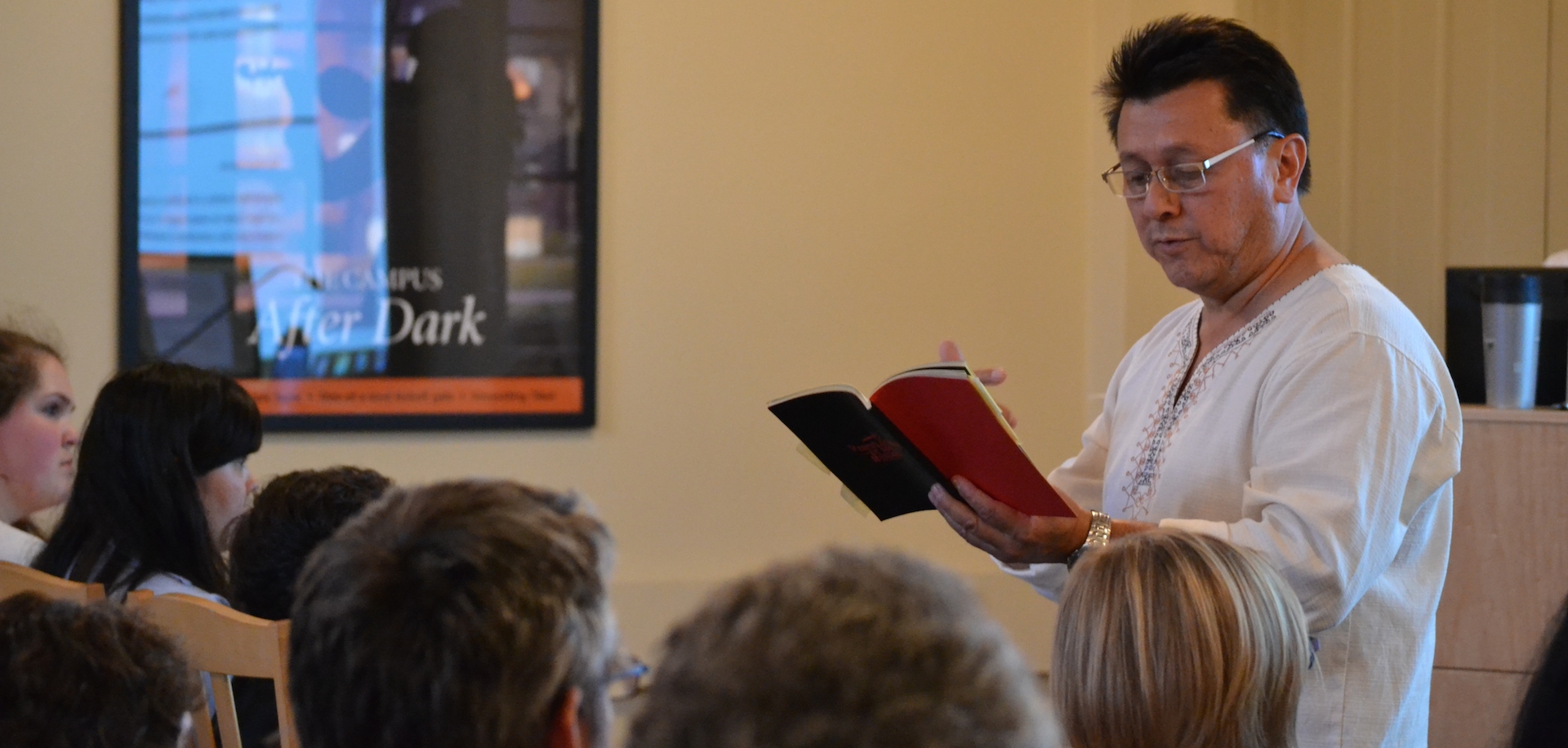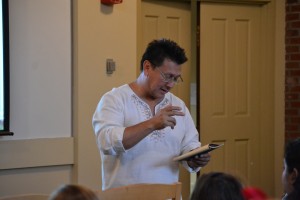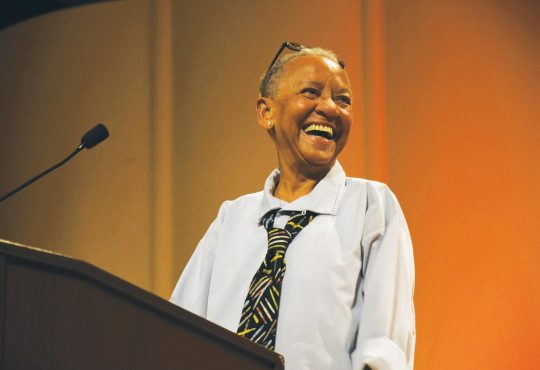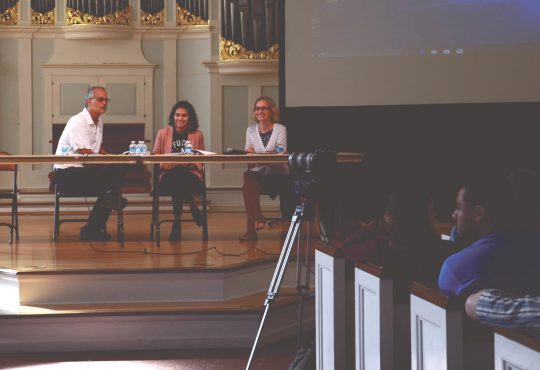
Those who were lucky enough to see Rojas Joo recite his poetry experienced a very beautiful and profound performance. The bilingual reading, held on Wednesday, Oct. 1, was brief but meaningful. Rojas Joo is a poet from Ciudad Juárez, México, and currently teaches at Ohio Wesleyan University.
“What am I supposed to do as a poet?” Rojas Joo said. “What am I supposed to do now that I live so far from a border?”
He spoke of his motivation for writing poetry and briefly of his experience growing up in Ciudad Juárez, a city on the border.
“When you hear him recount it with his personal experience, and he gets emotional, and he gets into it, it communicates to you more than just dry numbers and facts that you might read about in the newspaper,” Puget Sound Spanish professor Sally Perret said. “It makes it real. And I think also when you make art of it in general, it’s that luz/light. You’re trying to make something beautiful out of tragedy.”
Perret was the one who requested that Rojas Joo come to Puget Sound.
Throughout the reading, Rojas spoke quietly, but with immense passion for the words he recited. He remained calm, but his message was persistent. He enunciated each word with great care. Emotion filled his words, both during the recitations and his explanations.
“The borders are actually very interesting places to be. . . a border is an entrance and an exit,” Rojas Joo said.
He touched on the social issues surrounding the Mexico-US border, and drew the audience’s attention with his powerful language and intonation.
“It is incredibly moving in the wake of the Race and Pedagogy Conference,” sophomore Sierra Miller said. “It reinforces the idea that we need to be constantly aware of this issue.”
He spoke of the tragedies that arise along borders. He spoke of the death, the pain and the mistreatment, but he spoke also of finding hope along a border. He even managed to bring laughter into the room.
“Why am I reading it in English?” Rojas Joo said, looking confused, after beginning his next poem in English. He laughed along with the audience and then began again, this time reading in Spanish.
The poetry reading successfully mixed the passionate words from the author’s mouth with English translations recited by various Puget Sound students.
“I think it’s the way he reads that makes it so impactful,” Perret said.
On Thursday, Oct. 2, as a second part to the poetry reading, Rojas Joo held a workshop for Puget Sound students, faculty and community members to each personalize a poetry book. Each person attending was given a booklet of his poems and a cardboard cover which they could decorate using paint, glitter and markers. In this way, people created their own decorated book to keep as a souvenir of the occasion.
This type of workshop is referred to as cartonera, and is growing in popularity as an alternative way to share poetry without dealing with large publishers.
“I really love the concept of cartonera workshops, and it is something that has really taken off in Latin America and Europe,” Perret said. “It’s because sitting there together, making art, gives us something in common.”
These two events with Rojas Joo not only gave students a chance to express their artistic sides, but also to learn about his experiences as told through poetry. They felt his sadness, his frustration and his hope as he read his work.
Hopefully events combining art and awareness such as this will continue to be available for Puget Sound students as the year goes on.
Excerpt from
La noche en vela/Up all night
by Juan Armando Rojas Joo
El mundo espera
Oh, say can you see
la última canción de rap
by the dawn’s early light,
los diarios se cobran con víctimas de violación y guerra
what so proudly we hailed
y los ricos con el precio del petróleo y las finanzas
at the twilight’s last gleaming
y ella gritaba–¡No me maten!
Nadie reclamó en la morgue
And the rockets’ red glare
al niño que mató la migra de esta lado
the bombs bursting in air.
Pasé la
noche en vela
no tiene prisa la poesía
en el 2012 se cumple el quinto sol
ya que tanto aclamamos la noche al caer
la próxima vez cruzaré el desierto en una estrella.






